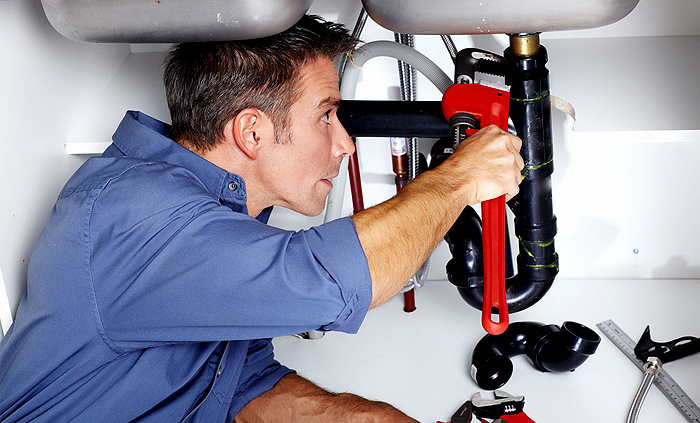When you begin the skeptical search for a Wellington plumber, you’re probably expecting the worst. Shows like target and horror stories we see shared around Facebook community shine a poor light on the plumbing trade: unfortunately, the honest kiwi plumber will be effected by this negativity.
We have an article to share with you this month across our blogs that will (hopefully) restore your faith in the plumbing trade, and have you hesitate a little less when you call the team at Plumbspec for a professional plumbing service in Wellington.
The Art of Manliness sought to interview a professional plumber in America for a little insight into the life of a good honest tradesman, and what plumbing really means to him:
This article was written by Jeremy Anderberg, and the original can be found on The Art of Manliness website.
So You Want My Trade: Plumber
If your idea of a plumber is an uneducated, unkempt, overweight man with generous butt crack showing, you need to think again. They may have a poor reputation in pop culture, but plumbers truly help keep our nation’s infrastructure running. Without them, we’d literally be swimming in crap. Beyond the industry’s necessity, it can make a great career, even for the entrepreneurial type.
I had the pleasure of talking with Steve Egner, owner of Steve’s Plumbing in Washington state, about his work and his business. It was an enlightening conversation, and I guarantee you’ll learn something new about being a plumber. Heck, maybe you’ll even be making plans to pursue a new career!
Tell us a little about yourself (Where are you from? How old are you? Describe your job and how long you’ve been at it, etc.).
I just turned 55 years old. I’ve been a plumber since 1978. I grew up in Austin, Texas. I went, briefly, to the University of Texas, but I was persuaded by a friend to go into the plumbing field. So I picked that up, and over time, became adept at it and realized I could make a living at it, so I continued.
I obtained my first license in Austin in 1983. I moved to the northwest in 1986 and opened Steve’s Plumbing in 1995. So this is our 20th year in business, and we’ve been adding employees and growing very deliberately since 2006. We’re by all accounts a small business and a successful one.
Why did you want to get into the plumbing industry? Was it something you always knew you wanted to do?
Absolutely not. I used to joke with people who’d ask me, “How did you get into plumbing?” I’d tell them, “I must’ve done something really bad in a former life.” Most of the people in the industry are here by accident. Most don’t grow up in a family plumbing business, or if they do, they don’t end up in plumbing. It’s just one of those things, when an opportunity arises, you’re helping a friend, next thing you know, you’ve been doing it for a year. Then, you find it’s a lifetime trade and skill. A lot of people find it by accident; that’s certainly what I did.
Tell us a little bit about what you do as a plumber. I’m sure it’s more than just fixing leaky faucets and de-clogging toilets.
We train our men to be diagnosticians. Plumbing problems rarely present themselves easily, so they have to be in possession of critical thinking skills to go and determine the root cause of a problem. For instance, a leaking faucet might simply be a symptom of a greater problem. A plumber should go in and as part of his diagnosis be checking the water heating system, the water temperature, water pressure, etc., and there may be clues that there is a systemic problem greater than just that one problem that presents itself.
And then when we find that, we’ve got to be able to convey, in simple terms, for a homeowner, exactly what is wrong and what we’re going to do to cure the problem. And then we have to be prepared to justify our costs because, like every skilled trade, plumbing is expensive, and materials are expensive. But the homeowner is going to compare their particular repair to the cost of a fixture or a part that they can find in a home center, because these days home centers are selling materials for virtually wholesale cost. If we go in to replace a toilet, and we say that’s a $700 purchase, and the homeowner says, “I saw one at home depot for $85,” we’ve got to be able to justify that difference in our pride, our workmanship, the quality of the material that we’re presenting, and our warranties. And that takes a communicator. If you’ve got a strong and silent type who doesn’t think on his feet, then he’s not going to go very far.
What is the biggest misconception that people have about being a plumber?
Probably that we’re ill-educated, poorly spoken, uninformed, rednecks. I think a lot of people have that perception of the trade. I’ve known plumbers who are wonderful artists, musicians, and pride themselves on their leadership skills. They’re people from all walks of life, and just because they’ve found themselves in a service trade doesn’t mean that they’re not educated. They’re adept and mentally strong people to be able to survive and keep their dignity and keep their self-confidence in a culture that, basically, diminishes the value of service industry workers.

